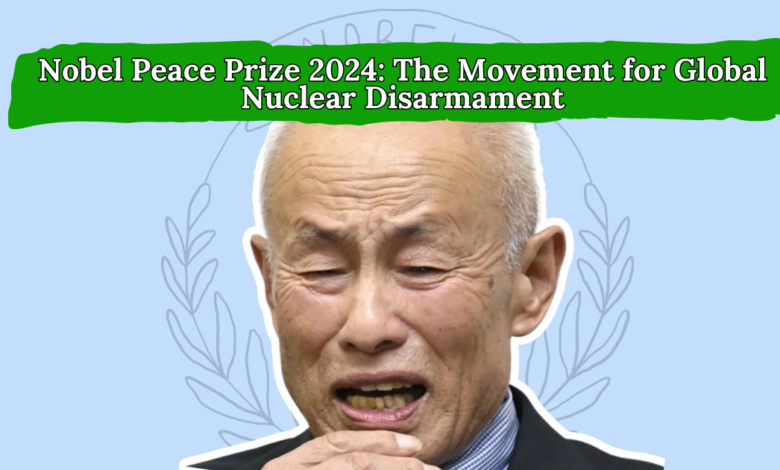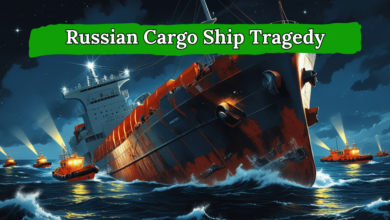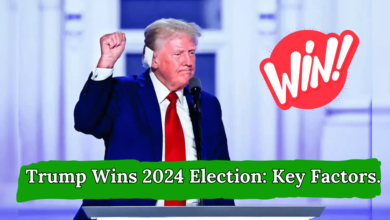Shocking Truth: Nobel Peace Prize 2024 Sparks Global Debate

Nobel Peace Prize 2024: The Movement for Global Nuclear Disarmament
The Nobel Peace Prize 2024 has ignited a global conversation about nuclear disarmament. This year, the prestigious prize was awarded to Nihon Hidankyo, the Japan Confederation of A- and H-Bomb Sufferers Organizations. The recognition of this group’s tireless efforts emphasizes the crucial need to eliminate nuclear weapons and honor the survivors of the atomic bombings of Hiroshima and Nagasaki.
What is the Nobel Peace Prize 2024?
The Nobel Peace Prize 2024 recognizes individuals or organizations who have made exceptional contributions to world peace. The selection of Nihon Hidankyo highlights their decades-long struggle against nuclear weapons and their work in advocating for a world free of nuclear armament. Established in 1956, Nihon Hidankyo is one of the most prominent voices calling for nuclear disarmament, supported by the experiences of survivors of the atomic bomb attacks in Japan.
The Nobel Peace Prize 2024 aligns perfectly with the growing global concern surrounding nuclear proliferation and disarmament, making it a landmark year for peace initiatives.
Why Nihon Hidankyo? A Beacon of Hope for Nuclear Disarmament
Nihon Hidankyo’s focus on nuclear disarmament through survivor testimony has made a significant impact on international disarmament policy discussions. The survivors, also known as hibakusha, represent the human face of the nuclear debate, sharing firsthand accounts of the devastating effects of nuclear bombs.
Key Contributions of Nihon Hidankyo
- Advocacy for the Treaty on the Prohibition of Nuclear Weapons (TPNW): Nihon Hidankyo has been instrumental in lobbying for the TPNW, which seeks to prohibit nuclear weapons completely.
- Survivor Testimony: Hibakusha regularly speak at international forums, providing powerful narratives that demonstrate the humanitarian consequences of nuclear weapons.
- Global Awareness Campaigns: Nihon Hidankyo has partnered with various global organizations to promote nuclear disarmament through public advocacy.
Check Also: Ratan Tata Passed Away: A Legacy of Leadership and Philanthropy
The Significance of the Nobel Peace Prize 2024
The Nobel Peace Prize 2024 shines a spotlight on the growing movement toward nuclear disarmament, reinforcing the urgency of eliminating nuclear weapons before another catastrophe occurs. This award is more than a symbolic gesture; it is a call to action for all nations to commit to the goal of a nuclear-free world.
The Role of Hibakusha in Advocacy
The emotional and physical toll that nuclear weapons have taken on hibakusha makes them powerful advocates for peace. Their stories of suffering and resilience are key to educating the world about the catastrophic consequences of nuclear warfare. Nihon Hidankyo has provided a platform for these survivors, helping shape international conversations on disarmament.
Current Global Nuclear Threat: Where Do We Stand?
Despite numerous disarmament efforts, nuclear weapons still pose a significant threat to global security. The Nobel Peace Prize 2024 highlights the dangers posed by countries that continue to develop and modernize their nuclear arsenals. Major nuclear powers, including the United States, Russia, and China, have not yet signed the Treaty on the Prohibition of Nuclear Weapons (TPNW), raising concerns about future arms races.
Nuclear-Armed States and Their Influence
- The United States and Russia: These two countries possess the largest nuclear arsenals and are currently modernizing their nuclear capabilities. The US, in particular, argues that nuclear deterrence is necessary for national security.
- North Korea and Iran: Both countries have defied international treaties and agreements, continuing to develop nuclear technology, which exacerbates regional tensions.
While the Nobel Peace Prize 2024 serves as a beacon of hope, the reality remains that nuclear weapons are still viewed as essential to the national defense strategies of several countries. This prize forces global leaders to confront the ethical and humanitarian costs of maintaining such destructive arsenals.
Treaty on the Prohibition of Nuclear Weapons (TPNW): The Path Forward?
The Treaty on the Prohibition of Nuclear Weapons (TPNW) is a groundbreaking international agreement that seeks to ban the use, production, and possession of nuclear weapons. While it has garnered support from many nations, the treaty faces significant opposition from nuclear-armed states.
Nihon Hidankyo has played a crucial role in supporting the TPNW, and the Nobel Peace Prize 2024 further elevates the importance of this treaty. The award brings renewed focus to the TPNW, encouraging more nations to sign and ratify the treaty in the coming years.
Challenges in Implementing the TPNW
- Lack of Participation from Nuclear States: Major nuclear powers, including the US, Russia, and China, have not joined the treaty, arguing that their nuclear capabilities serve as deterrents against aggression.
- Enforcement Mechanisms: Ensuring compliance with the TPNW remains a challenge, particularly in regions where nuclear weapons are viewed as essential for security.
The Human Cost of Nuclear Weapons
The legacy of nuclear weapons extends far beyond the immediate impact of Hiroshima and Nagasaki. The hibakusha, who have lived through unimaginable horrors, continue to suffer from long-term health consequences, including cancer, radiation poisoning, and psychological trauma.
Nihon Hidankyo’s work is rooted in these lived experiences, reminding the world of the devastating toll that nuclear weapons inflict on humanity. Through their testimonies, survivors advocate for a nuclear-free future where no one else will endure the same suffering.
Long-Term Health Effects on Hibakusha
- Cancer and Chronic Illnesses: Exposure to nuclear radiation has led to significantly higher rates of cancer and other chronic diseases among survivors.
- Psychological Trauma: The mental health impact on hibakusha has been profound, with many survivors dealing with PTSD and anxiety decades after the bombings.
- Intergenerational Effects: Radiation exposure has also had effects on the children and grandchildren of hibakusha, with some facing higher risks of birth defects and chronic illnesses.

What Does the Future Hold for Nuclear Disarmament?
The Nobel Peace Prize 2024 offers a glimmer of hope in the quest for a world free of nuclear weapons. However, the road ahead is fraught with challenges. For true progress to be made, nuclear-armed states must reconsider their defense policies and prioritize humanitarian concerns over military dominance.
Key Actions for a Nuclear-Free Future
- International Diplomacy: Encouraging dialogue between nuclear and non-nuclear nations is essential. Diplomatic efforts must focus on creating an environment of mutual trust and cooperation.
- Public Advocacy and Awareness: Grassroots movements, led by organizations like Nihon Hidankyo, play a pivotal role in raising awareness and putting pressure on governments to take action.
- Ratification of the TPNW: More nations must ratify the TPNW to build momentum toward global disarmament.
Conclusion
The Nobel Peace Prize 2024 serves as a powerful reminder of the ongoing threat that nuclear weapons pose to global peace and security. By honoring Nihon Hidankyo, the world is called to listen to the voices of survivors, who have witnessed firsthand the devastation of nuclear warfare. Their courage, combined with international efforts like the TPNW, offers a path toward a safer, nuclear-free future.
The fight for disarmament is far from over, but the Nobel Peace Prize 2024 has reinvigorated the global movement to eliminate nuclear weapons once and for all.




